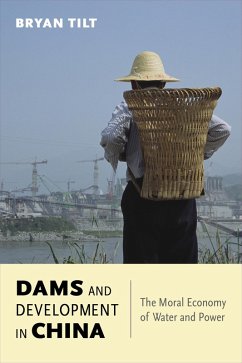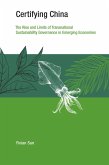China is home to half of the world's large dams and adds dozens more each year. The benefits are considerable: dams deliver hydropower, provide reliable irrigation water, protect people and farmland against flooding, and produce hydroelectricity in a nation with a seeimingly insatiable appetite for energy. As hydropower responds to a larger share of energy demand, dams may also help to reduce the consumption of fossil fuels, welcome news in a country where air and water pollution have become dire and greenhouse gas emissions are the highest in the world.
Yet the advantages of dams come at a high cost for river ecosystems and for the social and economic well-being of local people, who face displacement and farmland loss. This book examines the array of water-management decisions faced by Chinese leaders and their consequences for local communities. Focusing on the southwestern province of Yunnan-a major hub for hydropower development in China-which encompasses one of the world's most biodiverse temperate ecosystems and one of China's most ethnically and culturally rich regions, Bryan Tilt takes the reader from the halls of decision-making power in Beijing to Yunnan's rural villages. In the process, he examines the contrasting values of government agencies, hydropower corporations, NGOs, and local communities and explores how these values are linked to longstanding cultural norms about what is right, proper, and just. He also considers the various strategies these groups use to influence water-resource policy, including advocacy, petitioning, and public protest. Drawing on a decade of research, he offers his insights on whether the world's most populous nation will adopt greater transparency, increased scientific collaboration, and broader public participation as it continues to grow economically.
Yet the advantages of dams come at a high cost for river ecosystems and for the social and economic well-being of local people, who face displacement and farmland loss. This book examines the array of water-management decisions faced by Chinese leaders and their consequences for local communities. Focusing on the southwestern province of Yunnan-a major hub for hydropower development in China-which encompasses one of the world's most biodiverse temperate ecosystems and one of China's most ethnically and culturally rich regions, Bryan Tilt takes the reader from the halls of decision-making power in Beijing to Yunnan's rural villages. In the process, he examines the contrasting values of government agencies, hydropower corporations, NGOs, and local communities and explores how these values are linked to longstanding cultural norms about what is right, proper, and just. He also considers the various strategies these groups use to influence water-resource policy, including advocacy, petitioning, and public protest. Drawing on a decade of research, he offers his insights on whether the world's most populous nation will adopt greater transparency, increased scientific collaboration, and broader public participation as it continues to grow economically.
Dieser Download kann aus rechtlichen Gründen nur mit Rechnungsadresse in A, D ausgeliefert werden.









